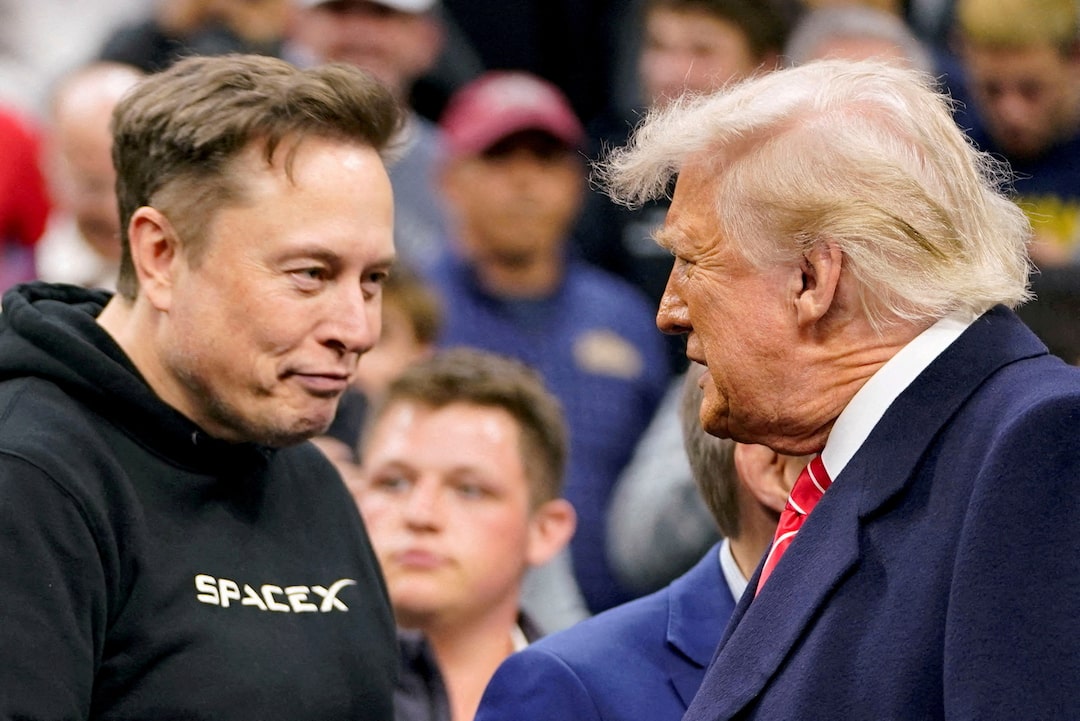Elon Musk and Donald Trump Clash Over Subsidies and Tax Bill
The President of the United States, Donald Trump, reignited a verbal conflict with Elon Musk, CEO of Tesla and one of the world’s wealthiest individuals, advocating for a review of governmental subsidies to Musk’s businesses. Trump’s statement followed Musk’s renewed reproach of a comprehensive tax reduction and expenditure bill, promising to depose legislators who advocated for it despite their electoral promises for reduced governmental expenditure. Musk, a significant donor to the Republican party, saw Tesla shares drop over 6% prior to market trading, a signal of potential new challenges for the business magnate.
Musk, whose primary wealth originates from the electric vehicle manufacturer, Tesla, is currently testing robotaxis in Texas, wagering on their commercial success. The U.S Department of Transportation, which oversees vehicle design regulations, will be instrumental in determining if Tesla can scale up the production of steering wheel and pedal-less robotaxis. In addition to Tesla, Musk also owns SpaceX, a space exploration company with approximately $22 billion worth of federal contracts.
In a public message on Truth Social, President Trump suggested, ‘Elon may have earned more subsidies than any other individual in history, by a significant margin. Elon would likely have to terminate his operations and return to South Africa without these subsidies.’ He then proposed that the Department of Government Efficiency take a closer look at these subsidies, hinting at potential considerable savings.
Reacting to Trump’s statement, Musk responded on his personal social media forum, X, by stating succinctly, ‘CUT IT ALL. Now.’ Trump retorted by stating that Musk’s annoyance had arisen from the loss of the EV mandate in the recent tax and spending bill, admonishing Musk that there could be even more significant losses in his future.
Scott Bessent, the U.S. Treasury Secretary, also countered Musk’s assertion that the bill would inflate the deficit, reassuringly mentioning, ‘I’ll manage’ the country’s economy. Trump had previously threatened to revoke Musk’s governmental contracts in early June, when their relationship soured over a disagreement regarding the tax-cut bill. This bill is estimated by impartial analysts to add about $3 trillion to the U.S. debt.
This disagreement had ripple effects on Tesla’s market value, wiping off $150 billion as investors feared stricter regulations for the autonomous robotaxi, which is a crucial part of the company’s value proposition. The stock saw some recovery after Musk retracted some of his remarks, confessing that he had taken things ‘too far’.
Dennis Dick, Chief Strategist at Stock Trader Network, raised concerns over Musk’s bristling relationship with Trump: ‘Musk can’t keep himself in check. He’s disturbing Trump. If U.S. subsidies are lost, Tesla could face a downturn in sales due to the significant decrease in their international sales.’ He further concluded, ‘Musk needs Trump, while Trump doesn’t need Musk’.
Data from June showed a decline in Tesla’s sales in Sweden and Denmark for the sixth consecutive month. Market analysts anticipate a drop in Tesla’s second-quarter delivery figures to be reported on Wednesday.
Musk broke his recent silence and jumped back into the debate over the weekend as the Senate began deliberating the package. He labelled it as ‘utterly absurd and destructive’ on his platform, X. Musk criticized lawmakers who campaigned on decreasing spending, asserting that those who supported the bill ‘should hang their heads in shame!’
Musk also vowed to ensure the defeat of these lawmakers in their next primaries. And in a striking deviation, Musk called for the creation of a new political party. He condemned the bill’s exorbitant spending, deducing that it pointed towards the existence of a ‘PORKY PIG PARTY’—a single-party system.
This shift comes after Musk previously supported Trump’s re-election campaign with an investment nearing $300 million and spearheaded a government program known as DOGE. Musk contested that the new legislative bill would drastically increase the national debt, negating the savings he claimed to have achieved through DOGE.
The extent of Musk’s influence on Congress and the potential impact of his views on the passing of the bill remain unclear. However, Republicans have expressed their worries that the sporadic feud between Musk and Trump could negatively impact their chances of maintaining a majority in the 2026 midterm congressional elections.

